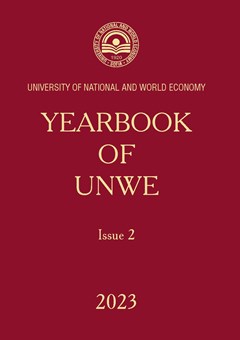The End of the Energy War in Europe
Author: Emil Asenov
Abstract
The article traces the development of the confrontation and economic war between European countries and Russia in the energy sector following the start of Russian aggression in Ukraine. The main actions taken by Russia are outlined, which created an energy deficit in the energy markets and posed a significant risk to the energy security of European countries. The specific steps taken to stabilize the energy supply system and counter Russian policies are mentioned. Important instruments in energy policy are presented, including the “REPowerEU” plan and the decisions of the “Price Cap Coalition”. The effects of imposed sanctions on the Russian financial and economic system are analyzed, highlighting the low capacity of the Russian economy to compensate for the created deficits and limited opportunities for organizing alternative energy supplies. In conclusion, the main mistakes in Russia's energy strategy and energy policy are defined, leading to Russia's sustainable exclusion from the energy markets of Europe.
JEL: F51, F02, F17, Н68

